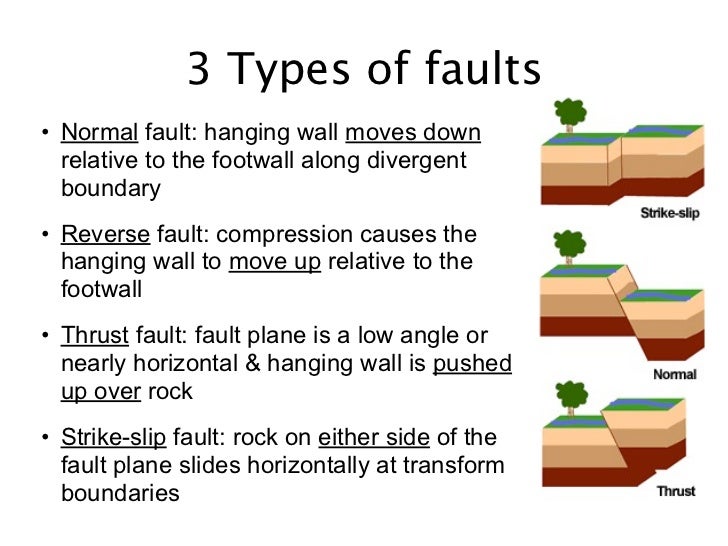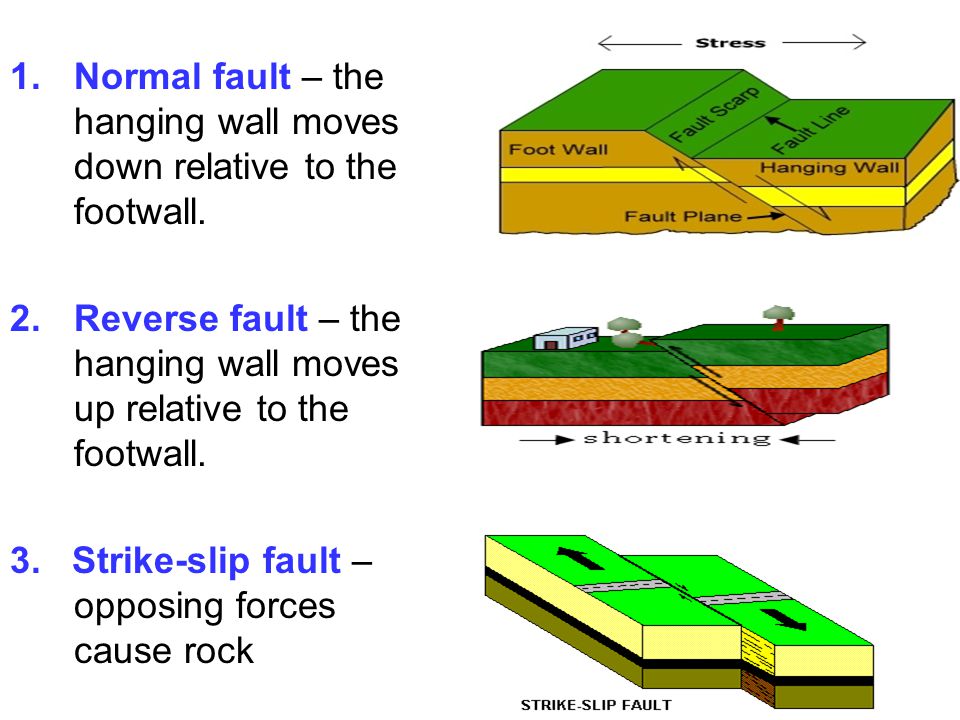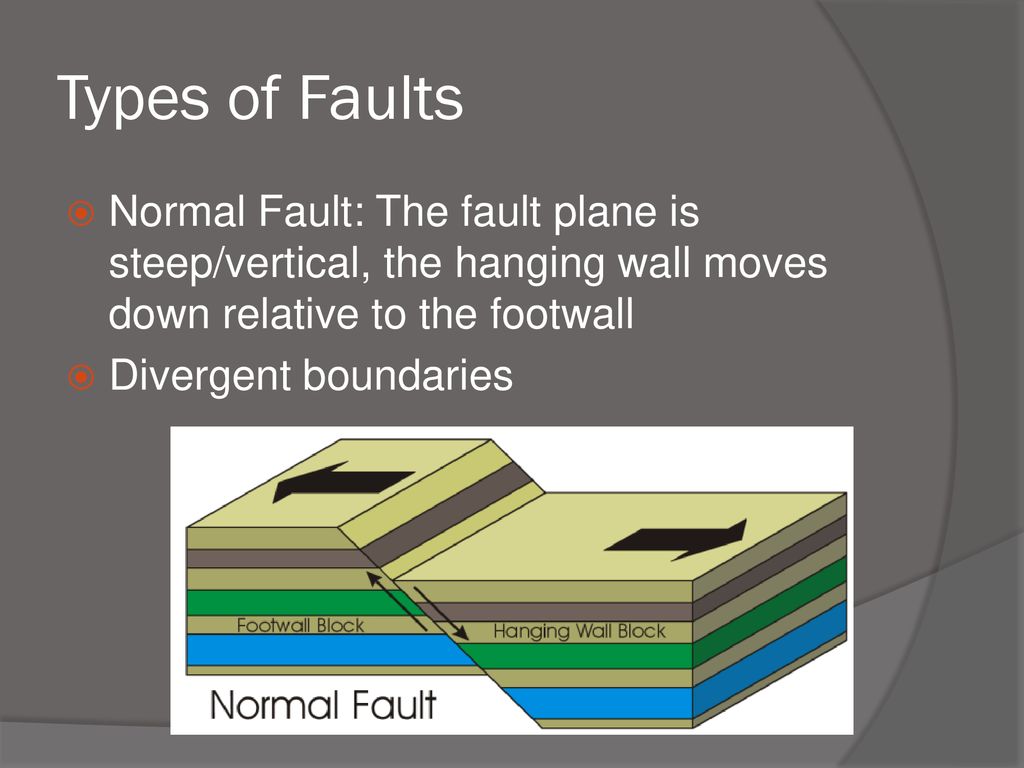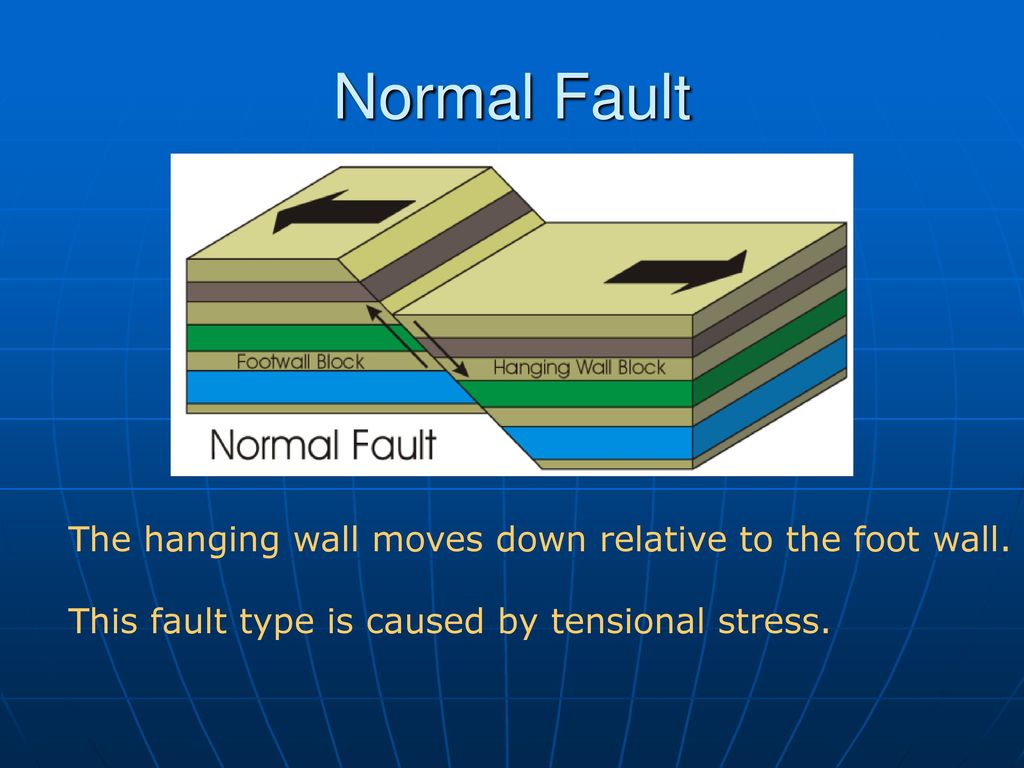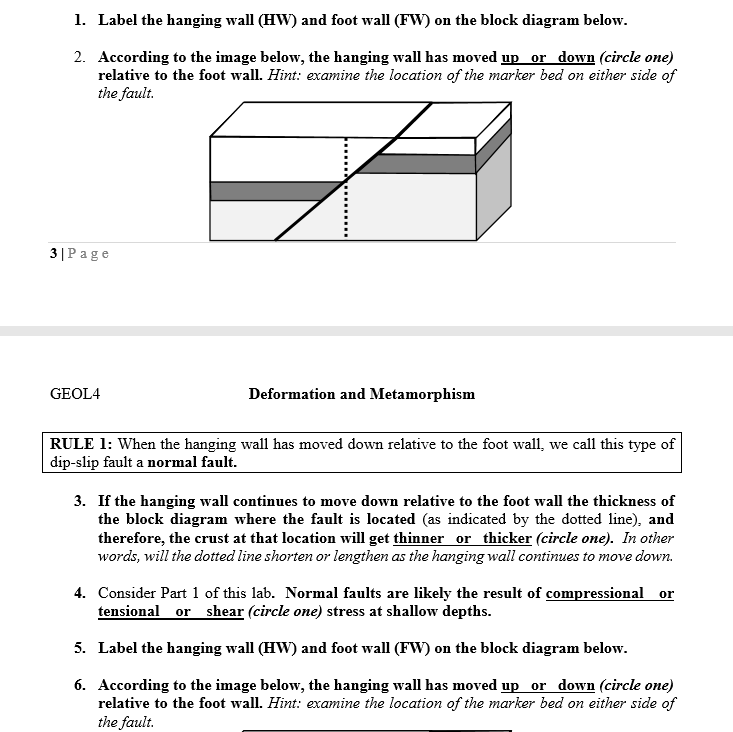Another type of fault is the thrust fault where ground on one side of the fault moves up and over adjacent ground.
The hanging wall moves downward relative to the footwall.
Normal dip slip faults are produced by vertical compression as earth s crust lengthens.
A downthrown block between two normal faults dipping towards each other is a graben.
Alternatively such a fault can be called an extensional fault.
These usually occur when tectonic forces cause tension that pulls rocks apart.
When the hanging wall moves down in relative to the footwall it is called a fault.
A normal fault occurs when the crust is extended.
An upthrown block between two normal faults dipping away from each other is a horst.
They bound many of the mountain ranges of the world and many of the rift valleys found along spreading margins.
Tension is stress that pulls rocks apart.
Along a normal fault the hanging wall moves down relative to the footwall.
In a normal fault the hanging wall moves downward relative to the footwall.
The hanging wall moves downward relative to the footwall.
Normal faults usually form where tectonic plate motions cause tension.
When the hanging wall moves up in relative to the footwall it is called a fault.


